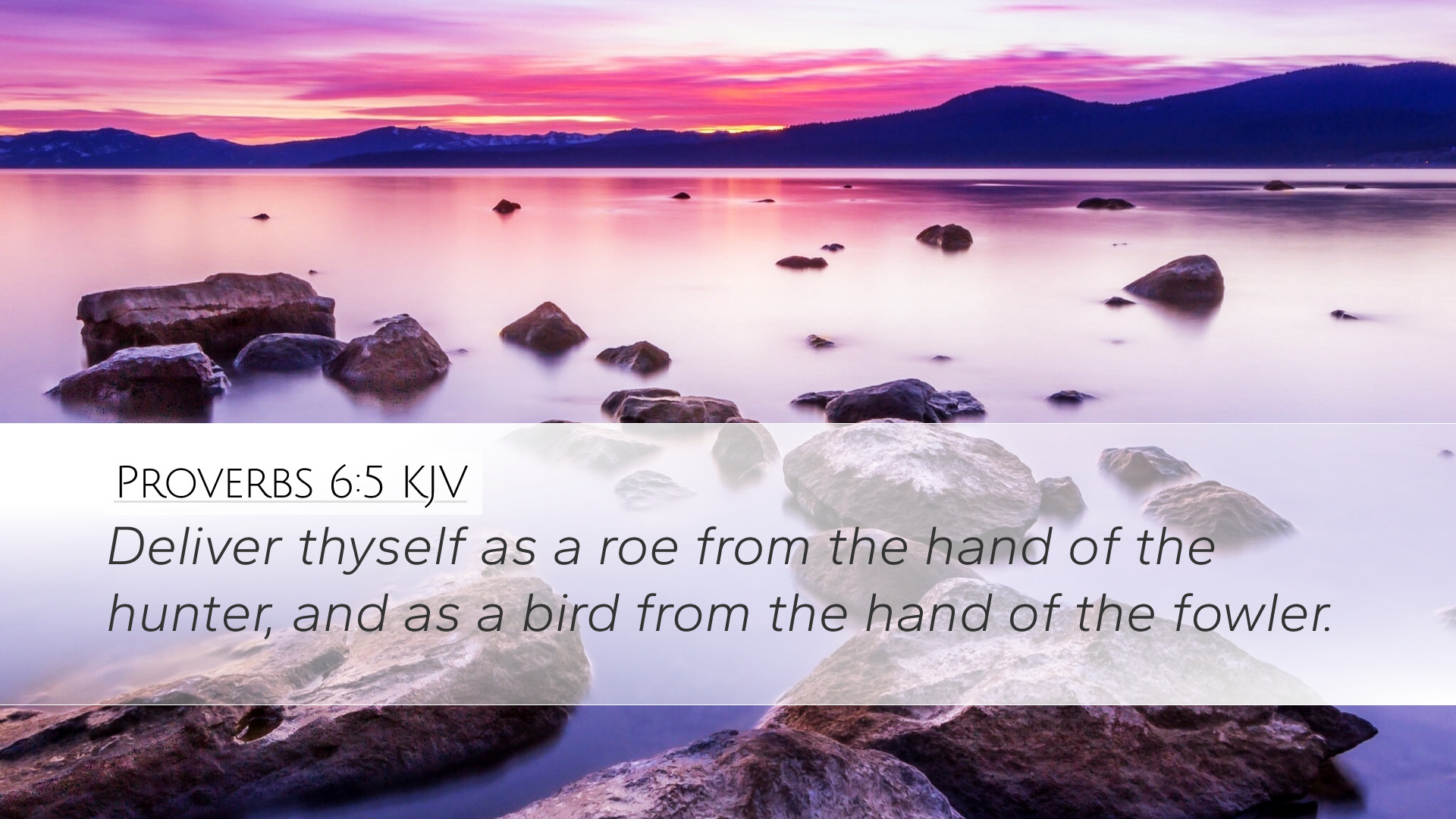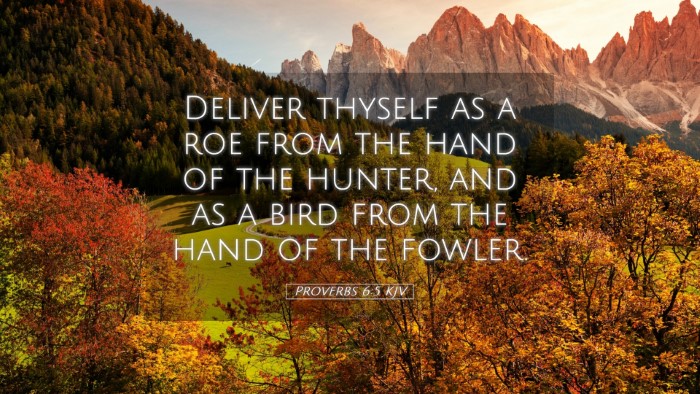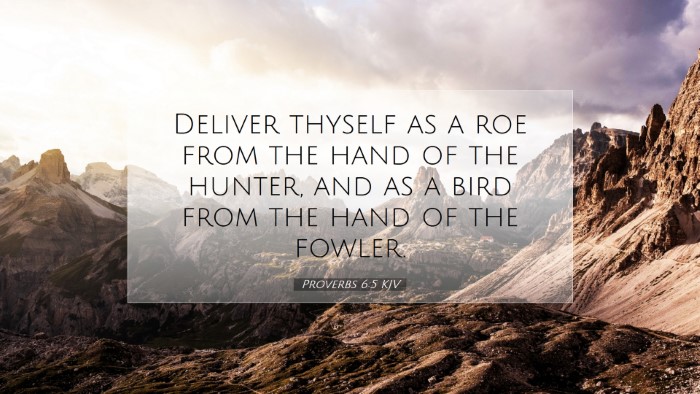Commentary on Proverbs 6:5
Proverbs 6:5 states: "Deliver thyself as a roe from the hand of the hunter, and as a bird from the hand of the fowler." This verse exhorts the reader to escape from danger and temptation with urgency. Various public domain commentaries have provided profound insights into this verse.
Overview and Context
In the broader context of the book of Proverbs, this particular verse is part of a section that warns against the dangers of laziness, debt, and moral lethargy. The call to deliver oneself signifies the immediate need for action in the face of peril.
Insights from Public Domain Commentaries
Matthew Henry
Henry emphasizes the grave situation that demands urgent action. He likens the dangers of temptation to the poised hunter or fowler, prepared to ensnare their prey. He notes that the urgency of the command suggests that procrastination can lead to debilitating consequences. Henry articulates that the metaphor of the roe (a deer) and the bird highlights God’s protection and provides examples of how instinctively these creatures flee from danger.
- Immediate Response: The verse advocates for a swift reaction when confronted with temptation or sin.
- Nature’s Example: Animals in the verse represent instinctual wisdom necessary for survival.
Albert Barnes
Barnes elaborates on the metaphoric implications of the imagery used in this verse. He asserts that the roe and the bird symbolize purity and vulnerability, reflecting the believer's condition in a world rife with moral compromise. He notes that the advice given is not merely a general principle but specifically addresses the dangers of sinful associations and bad debts, indicating a socio-economic dimension to fidelity and loyalty.
- Theological Implication: Deliverance implies both physical and spiritual liberation.
- Moral Integrity: Avoiding entrapment in temptation is crucial for maintaining one's integrity.
Adam Clarke
Clarke provides a detailed interpretation, connecting the verse with a broader understanding of the believer's conduct. He suggests that the urgency to "deliver" oneself aligns with the need for personal responsibility in spiritual matters. Clarke emphasizes that individuals must be aware of their surroundings and the dangers they face, advocating for a proactive and vigilant lifestyle to avoid being ensnared by the deceitful traps that life presents.
- Personal Responsibility: Each believer is responsible for their own spiritual flight from danger.
- A Call to Discernment: Being able to identify threats to one's spiritual life is essential.
Practical Applications
The insights from these esteemed commentaries can be practically applied in various contexts:
- Vigilance in Daily Life: Pastors and leaders should encourage their congregations to remain alert to potential moral and spiritual pitfalls.
- Education on Temptation: Students of the Bible can study examples of temptation, noting how characters in scripture approached their own sources of danger.
- Communal Reflection: In groups, individuals can discuss ways in which they can support one another in avoiding moral traps.
Concluding Thoughts
Proverbs 6:5 serves as a profound reminder of the importance of immediate action in the face of temptation. The analogy of the roe and the bird beautifully encapsulates the necessity for a believer’s instinctive response to flee from dangers. As we reflect on the combined wisdom of Henry, Barnes, and Clarke, let us challenge ourselves to cultivate an awareness of our surroundings, a readiness to act, and a constant reliance on God’s guidance to deliver us from harm.


